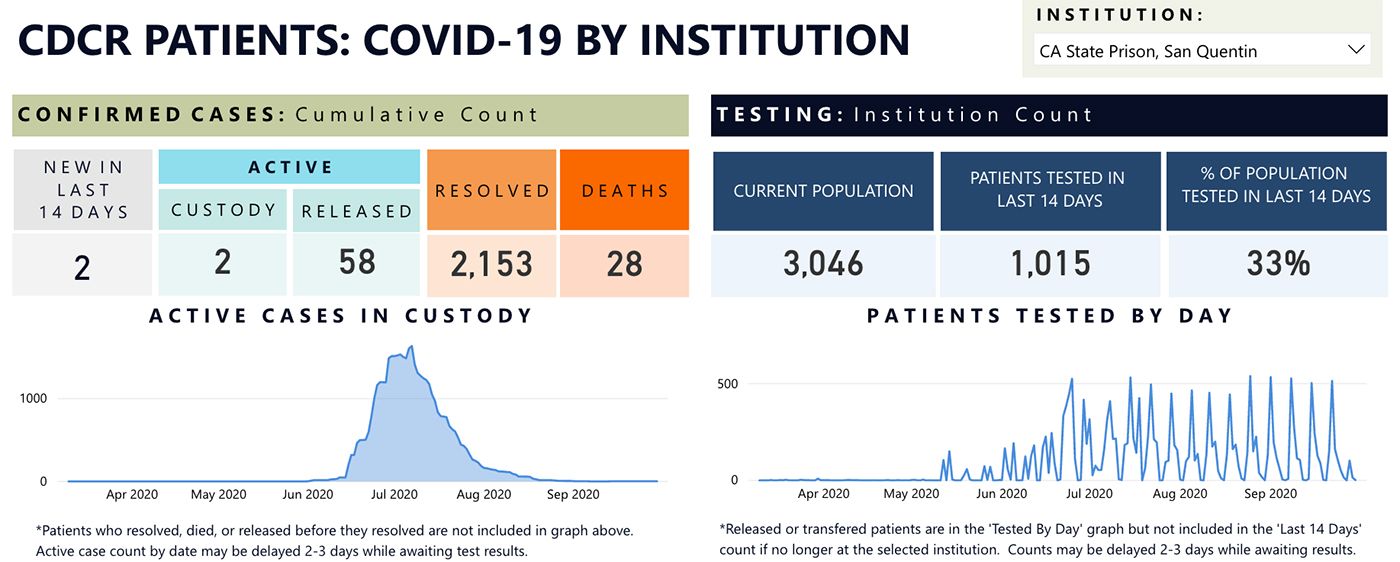The COVID-19 outbreak at San Quentin State Prison was largely contained over a month ago, with no new infections detected for weeks on end. But according to new data from the state's Department of Corrections and Rehabilitation (CDCR), that may be changing.
In the last few days, two new deaths among infected inmates at San Quentin were reported, and this comes after weeks of no new cases with the bulk of the outbreak having occurred in June and July. That brings the death toll at the prison to 28 — a toll which does not include 55-year-old prison guard Gilbert Polanco, who lived in San Jose and died there in August.
The total number of infected inmates since June has risen as well, to 2,241. As of three days ago, as the Mercury News reports, there were three inmates listed as currently infected, and today it is two — with both listed as being new infections in the last 14 days, according to CDCR data.

Earlier this month, the family of one of the inmates at San Quentin who died from the coronavirus filed a wrongful death claim against the CDCR — the first one thus far out of the 28 deaths. As the Los Angeles Times reported, the three children of 61-year-old inmate Daniel Ruiz, as well as his mother, filed the legal claim citing the mishandling of transferred inmates from the corrections facility at Chino, where an earlier outbreak had occurred in May — and which seeded the outbreak at San Quentin, where there had been no cases until the transfer occurred.
The spread of the disease at the prison was blamed in part on communal living quarters with old-fashioned barred cells — with no possibility of isolating potentially infected inmates from each other. The virus ultimately spread through multiple units at the prison, and it is unclear how many more infections were seeded outside its walls by infected employees.
"The folks in our prisons are human beings. Many who died at San Quentin had done nonviolent crimes and should have been coming back to their families soon,” said Ruiz family attorney Michael Haddad, speaking to the LA Times. "It is tragic and unacceptable that some prison bureaucrats treated them as less than human."
Ruiz had been serving time for what Haddad said was a minor drug crime, and he had been informed in March that he was eligible for early release as a nonviolent offender.
A number of other COVID deaths at San Quentin occurred among death row inmates, and advocates have continued to call their deaths untimely "executions."
It remains to be seen if the latest two cases, or any others that have gone undetected, mark the beginning of a new outbreak.
Meanwhile, an outbreak has been raging since August at Folsom State Prison outside Sacramento. New infections continue to be found there, and half of the total inmate population — 1,269 of a total of 2,399 — have been infected with COVID-19 in the last two months. 12 were granted early release, and one has died.

